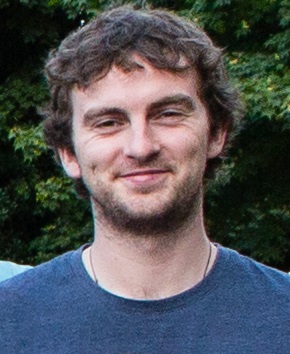You are here: Centre for Doctoral Training in Molecular-Scale Engineering > Our Students > Nick Jenkins
Nick Jenkins

Background
I have always been very interest in pursuing a scientific career. My A – Levels were Physics, Maths and Chemistry, as well as AS level Geography. I went on to study Physics and Nanotechnology at the University of Hull graduating with a BSc (Hons) before coming to the CDT in Molecular-Scale Engineering at Leeds.
Previous lab experience
My lab experience is quite varied, undergraduate labs in physics involved using a wide variety of instruments. On top of that there were several group-based lab projects which involved making a thermocouple based thermometer and studying the effects of an exoskeleton on the gait of the user.
Why I chose to study in the CDT in Molecular-Scale Engineering
The nature of the first year is probably the most enticing aspect of the course. The ability to choose three lab rotations from such a wide variety of research is something everyone should have the opportunity to do before choosing a PhD.
Secondly the coming together of people from many different academic backgrounds is very likely to lead to not only interesting but potentially lucrative results.
Finally after visiting both Sheffield and Leeds in the past I have considered both of them to be a great place to live.
Current research
In less than a year I have been involved in a project hoping to improve solar energy harvesting and another which has potential to be used as a drug delivery system for the treatment of cancer. There are so many fascinating choices of research that the hardest part is choosing the place to direct your efforts.
Advantages of an integrated PhD over a conventional PhD
Working with people from such a broad range of study broadens your ways of thinking about problems and allows for networking throughout different departments.
After doing this interdisciplinary course I am hoping that the areas of research I can perform in will be varied and I plan to take full advantage of that.
The most enjoyable aspects
Meeting people with similar view points to my own, learning to use all the equipment that two separate universities have to offer and getting paid to do it!
The most challenging aspects
The workload and the varied nature of the work is occasionally quite daunting. Coming from a Physics background some of the more biology related modules seemed a bit alien.
What would you say to other students interested in joining the CDT?
This is the best way to begin an academic career.


